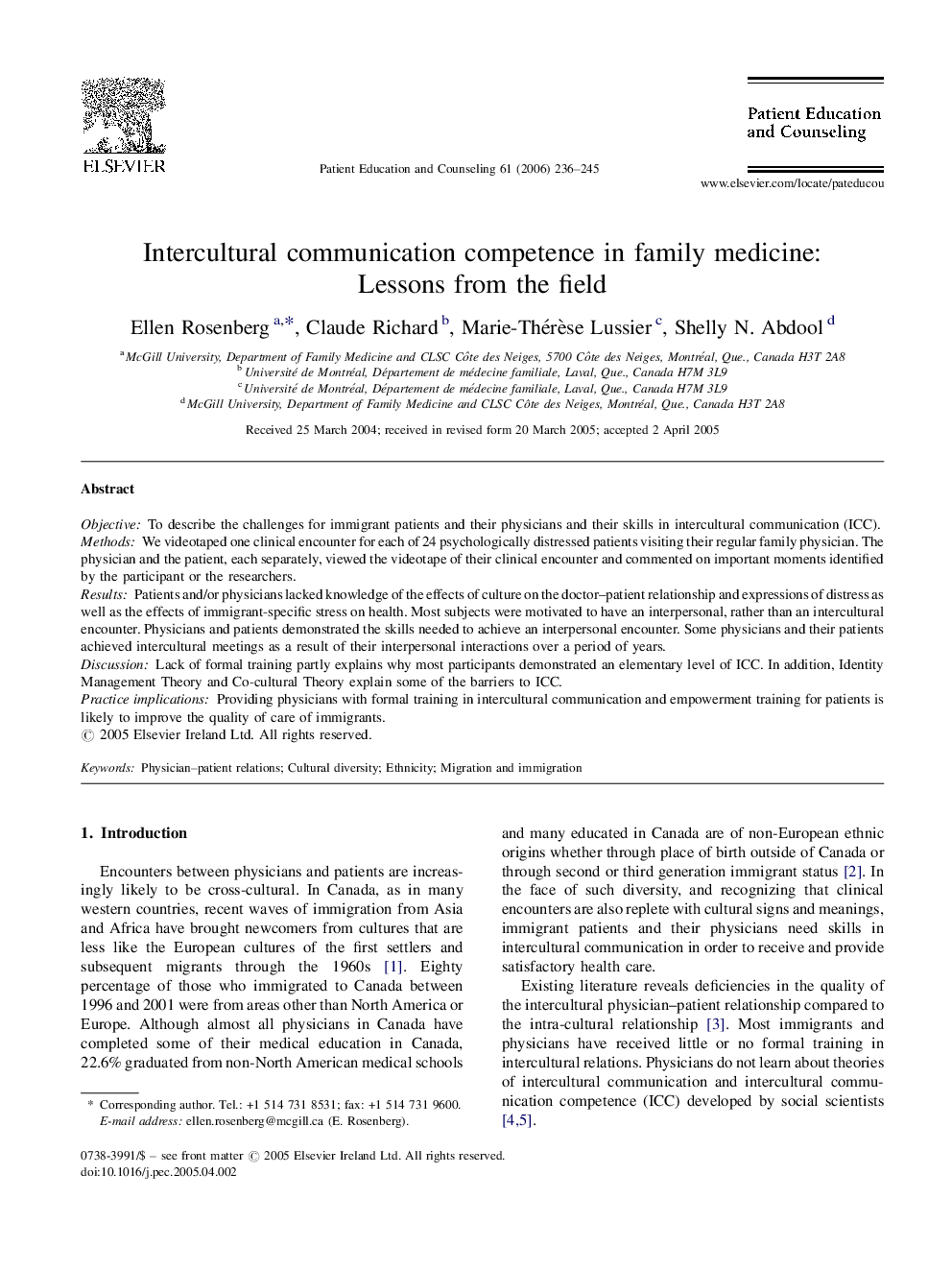| Article ID | Journal | Published Year | Pages | File Type |
|---|---|---|---|---|
| 3815537 | Patient Education and Counseling | 2006 | 10 Pages |
ObjectiveTo describe the challenges for immigrant patients and their physicians and their skills in intercultural communication (ICC).MethodsWe videotaped one clinical encounter for each of 24 psychologically distressed patients visiting their regular family physician. The physician and the patient, each separately, viewed the videotape of their clinical encounter and commented on important moments identified by the participant or the researchers.ResultsPatients and/or physicians lacked knowledge of the effects of culture on the doctor–patient relationship and expressions of distress as well as the effects of immigrant-specific stress on health. Most subjects were motivated to have an interpersonal, rather than an intercultural encounter. Physicians and patients demonstrated the skills needed to achieve an interpersonal encounter. Some physicians and their patients achieved intercultural meetings as a result of their interpersonal interactions over a period of years.DiscussionLack of formal training partly explains why most participants demonstrated an elementary level of ICC. In addition, Identity Management Theory and Co-cultural Theory explain some of the barriers to ICC.Practice implicationsProviding physicians with formal training in intercultural communication and empowerment training for patients is likely to improve the quality of care of immigrants.
